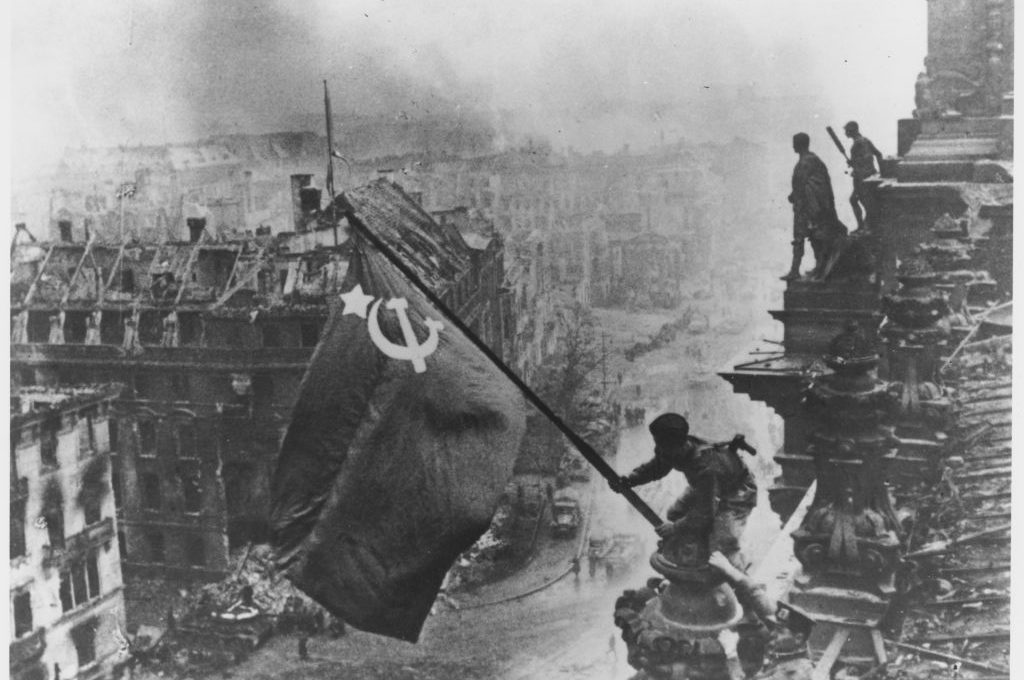Niall Ferguson is far from the first intellectual to compare the United States today to the Soviet Union of old. But Ferguson’s Free Press essay “We’re All Soviets Now” stirred up more discussion, and outrage, than earlier forays by others on the same theme. (Ferguson himself credits the Princeton professor Harold James with originating the phrase “Late Soviet America.”)
Joe Biden already seemed like America’s analogue to the superannuated Soviet premiers of the 1980s even before his disastrous June 27 debate with Donald Trump — who is himself older in 2024 than Brezhnev, Andropov or Chernenko were when they died. There’s also a grim parallel between the suicides and alcohol-related deaths of despair that characterized the period following the Soviet Union’s collapse and the suicides and opioid-related deaths of despair that characterize America today.
Ferguson noted that early twenty-first-century America has in common with late twentieth-century Soviet Russia an insistence upon ideological “truths” that everyone with an ounce of common sense knows to be lies, though he didn’t make the explicit comparison between Lysenkoism and today’s progressive gender ideology that many others have made.
But in foreign policy, Ferguson overlooked something important. To the end of its days, the Soviet Union was a promoter of worldwide revolution. During the Cold War, we were the counterrevolutionaries, aligned in almost every part of the world with those interests that stood for the status quo, or the status quo ante in places where communists had already fomented revolutionary upheaval.
We were on the side of property, family, religion and, of course, Western influence; the Soviets sought to get nations to uproot their economies, level the family, reject religion and embrace anti-colonialism and a hostile attitude toward the West and its history. The USSR was quite willing to put military power behind this agenda, but Moscow also advanced it through foreign aid, propaganda and political subversion, frequently employing local groups coached by Soviet intelligence.
This global revolutionary program cost the Soviet Union a lot of money it could ill afford to spare. But the Soviets spent it anyway. They were committed to a dream, one that their Marxist-Leninist holy texts pro ised would come true: Soviet communism was millenarian, and the worldwide triumph of its ideology inevitable. Communism was the end of History.
American foreign policy for the past thirty-plus years has had an equally millenarian premise, vouchsafed not by Marx but by Hegel, as interpreted not by Lenin but by Francis Fukuyama and a legion of lesser ideologues. The United States now, like the Soviet Union then, plays the role of midwife to a global revolution, one that will overthrow all the old economic relations, kinship ties, religious morals and debts to the pre-woke West.
The Soviet Union invaded and occupied Afghanistan for ten years in an attempt to prop up a socialist Afghan government. We spent twenty years propping up a democratic one. After Soviet forces left, the Taliban took over the country. The minute American forces began to leave, the Taliban took over again. The fact that we are far richer and militarily stronger than the old Soviet Union only meant we could waste more time and money getting to the same result.
We also had the wealth and power to try the same thing in Iraq, with hardly a more satisfying conclusion. Our war and occupation ended with Iraq aligned more closely with Iran than with us. The Soviets invaded Hungary in 1956 and Czechoslovakia in 1968, only to see both countries shrug off communism at the first opportunity (though that was decades coming). Washington and Moscow had very different intentions in these equally futile endeavors, to be sure. But neither the Cold War Soviet Union nor post-Cold War America succeeded in converting other nations to the “right side of history” through military occupation.
It would be a grave mistake to assign to any of America’s opponents or rivals today the counterrevolutionary function we served against the Soviet Union — history is not so symmetrical, and many powers resisting America’s revolutionary foreign policy have active agendas of their own, if not always intensely ideological ones.
The lesson we should have learned from the Soviets, however, is that ideology contributes to its own defeat. It squanders men, money and morale on wars that can’t be won and need not be fought in the first place. And revolutionary ideologues habitually overestimate the eagerness of foreign peoples to enlist in their cause.
What is America’s cause today?
The Washington consensus calls for conformity to a universal economic order, with no traditional national protections permitted to stand in the way of global market integration. Foreign aid and international institutions financed by US tax dollars bribe and cajole other nations into adopting drastic domestic economic reforms.
Similar measures, and stronger ones, are used to push other countries to adopt policies consistent with elite American attitudes toward gender and sexuality, displacing concepts of family and morality shaped by religion.
And while Washington policymakers and their confreres in Europe’s capitals still presume to speak for “the West,” they promote at home and abroad narratives in which Western civilization is as often as not the villain. The West is only right when it is crusading for what an earlier generation of foreign-policy revolutionaries called the Rights of Man.
The Evil Empire failed to avert its destruction by exporting revolution beyond its borders. A self-righteous liberal empire will fare no better. Let the American Revolution be enough for us.
This article was originally published in The Spectator’s August 2024 World edition.


























Leave a Reply